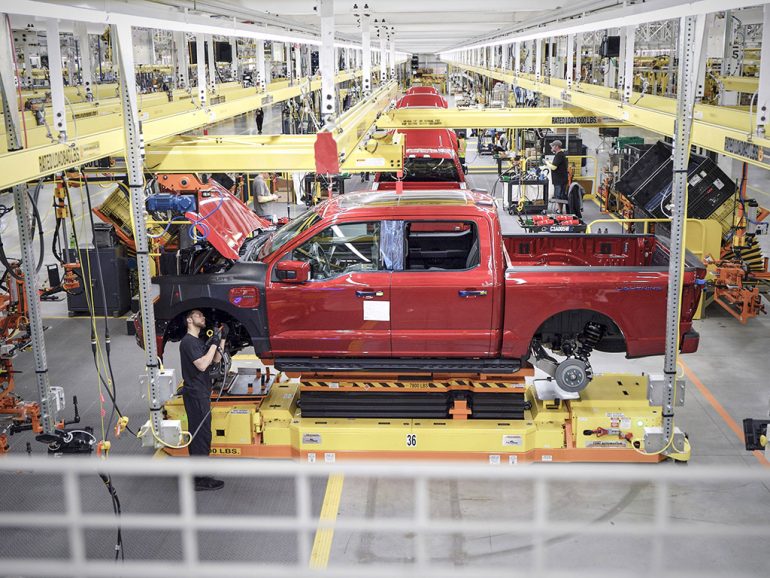Automotive

After months of tension surrounding automotive tariffs, the Trump administration is finally offering some relief to the auto industry by easing duties on imported parts used in American-built vehicles. The decision, confirmed by Commerce Secretary Howard Lutnick, aims to reduce the financial strain on automakers and suppliers while reinforcing the administration’s commitment to domestic manufacturing.
The move—expected to be officially announced during President Trump’s visit to Michigan on Tuesday—will eliminate the stacking of multiple tariffs on essential components like steel and aluminum and will include reimbursements for duties already paid. Framing the change as a win-win, Lutnick said, “President Trump is building an important partnership with both the domestic automakers and our great American workers.”
Described by the administration as a “major victory” for Trump’s trade policy, the revised approach is intended to reward companies investing in U.S. manufacturing while giving others a chance to adapt without facing sudden cost hikes.
Auto executives quickly welcomed the news. General Motors CEO Mary Barra praised the administration’s leadership, saying it enables GM to deepen its U.S. investments. Ford’s CEO Jim Farley noted that the policy shift “will help mitigate the impact of tariffs on automakers, suppliers and consumers.”
The announcement comes after a coalition of automakers and industry groups—including GM, Toyota, Volkswagen, and Hyundai—warned the White House last week about the potentially devastating effects of a proposed 25% tariff on imported parts. In a letter to top administration officials, the group explained how such a move could lead to higher vehicle prices, stalled production, and even bankruptcies among smaller suppliers.
“Most auto suppliers are not capitalized for an abrupt tariff-induced disruption,” the letter read. “It only takes the failure of one supplier to lead to a shutdown of an automaker’s production line.”
The administration’s decision to ease up on tariffs appears to be a strategic shift toward economic stability, especially as Trump marks his 100th day in office. While the president has built his trade legacy on a tough stance against foreign competition, the adjustment suggests a more flexible, responsive approach when domestic industries push back.
As Trump heads to Michigan—a symbolic epicenter of American automotive history—the industry will be watching closely to see if this new tone on trade becomes the rule, rather than the exception.
FOLLOW US TODAY:

